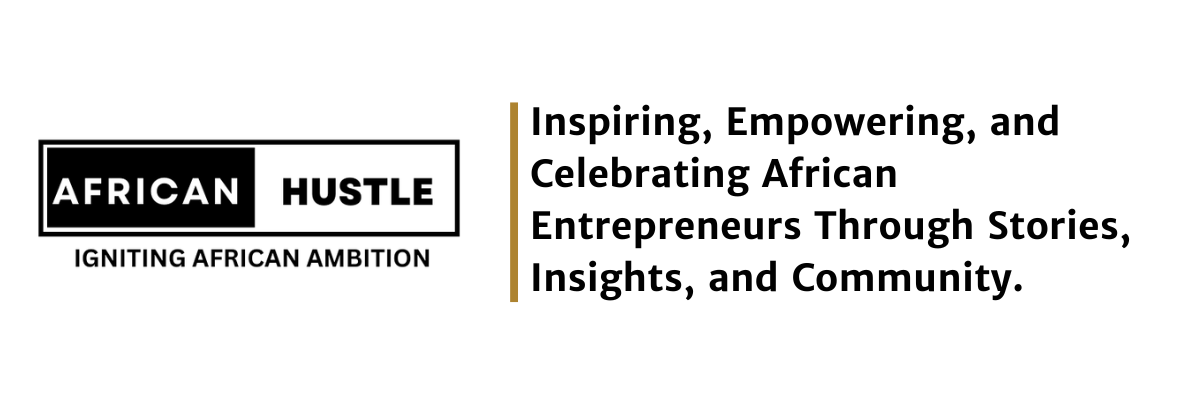
Welcome to African Hustle! Your bi-weekly dose of inspiration and smart insights into African entrepreneurship — featuring real stories about tech, culture, startups, founders, and innovations shaping the future of the continent.

Did You Know
The African Development Bank and World Bank report that while 10 to 12 million young Africans enter the workforce every year, the formal job market generates only around 3 million formal jobs annually. This means that formal employment growth is significantly outpaced by workforce growth, leading to high unemployment and underemployment.
Feature Story
Unlocking Real AI Opportunities at Home
I’m not going to make the typical AI rumbling, though, with the AI boom on full blast, who can really shut up?
We’re in the midst of one of the wildest wealth-creation sprees in recent memory.
According to CB Insights, there are now 498 AI unicorns, private AI companies valued at $1 billion or more, with a jaw-dropping collective valuation of $2.7 trillion.
The craziest part? 100 of those unicorns were founded since 2023. And beyond that, there are over 1,300 AI startups with valuations exceeding $100 million.
It makes me salivate just saying it. This isn’t some exclusive, gate-kept club; you and I might just crash the party.
But in all seriousness, where does Africa fit into all this?
We might not have been front and centre in those headline-grabbing fundraising rounds. But make no mistake, that doesn’t mean we’ve been sitting on the sidelines.
Two years before ChatGPT launched, there was an African startup already operating a conversational chatbot.
This startup is FoondaMate.
Why does FoondaMate Matter?
Launched in August 2020, FoondaMate predates OpenAI’s GPT boom by two years.
A homegrown, AI-powered chatbot accessible through WhatsApp, Facebook Messenger, and an Android app.
Designed from inception for reality, to solve real problems like crowded classrooms, scarce textbooks, and costly internet data.
Part of my schooling was at a rural school, and I’ve lived that story. Imagine a class of 40+ students, one teacher, and a locked library that feels haunted! You were more likely to encounter a ghost along the school corridors than score a textbook.
With FoondaMate, students text their questions to the bot and get the help they need in their language.
While global AI models are still scrambling to gather data on languages like isiZulu or Swahili, FoondaMate speaks them. To date, it is fluent in ten African languages.
African-First AI
FoondaMate isn’t a predecessor to GPT. It was built on existing NLP models like Meta’s LLaMA. But that does not take away its shine.
In 2020, most chatbots were novelty toys, either gimmicks or flashy, expensive corporate prototypes. FoondaMate wasn’t that. This was practical AI, designed for African realities.
Talking of 2020, in all honesty, many of us were just too busy trying not to die from COVID to be genuinely interested in researching and deploying AI.
Thankfully, some pioneers, such as the founders of FoondaMate, were not so selfish with their time and intellect as we were.
The impact of FoondaMate speaks for itself:
3 million+ users across 30+ countries in Africa, SE Asia, and Latin America.
Over 100 million student questions answered.
A 30% uplift in university eligibility among South African students using it.
This African startup has had more impact than a dozen speculatively valued Silicon Valley AI startups that have had sensational blockbuster fundraising rounds.
The real African AI opportunities don’t come from copying trends. They come from local insight.
Context matters. AI over WhatsApp is convenient and accessible.
Language matters. Indigenous tongues mean inclusion.
Affordability matters. Low-data AI means more access and inclusion.
FoondaMate was built for those local constraints. That’s what innovation in African AI opportunities looks like.
If there’s anything FoondaMate teaches us, it’s this: We are not followers. We are pioneers.
Since we are asserting the narrative that we are pioneers, we need to avoid jumping on every trend imaginable.
Let’s solve challenges that affect our communities. Our AI has to be African first.
What African AI startups have you seen grounded in real problems and local insight?
Recommendation
Are you interested in the best stories from South Africa’s startup and business scene? Whether you’re building, investing, or just curious, The Open Letter keeps you in the loop and ahead of the curve.
Subscribe to the Open Letter Newsletter here.
Inspiration Corner
The Story of Dacod Magagula, Founder of FoondaMate
Born into a rural township in Mpumalanga, South Africa, Dacod Magagula’s early years were marked by scarcity. He grew up without electricity until the age of seven, and his high school lacked the most basic resources. No textbooks, overcrowded classes of 50+ students, and little teacher support.
In Grade 9, a bold choice changed his future. He and his brother redirected their Christmas savings, initially reserved to buy clothes, to buy a second-hand computer instead. That modest investment became a turning point. With access to the internet, Dacod downloaded past exam papers and study guides. That self-taught edge helped him graduate top of his class and become the first-ever student from his school to gain admission to the University of Cape Town (UCT) to study computer science.
At UCT, he met Tao Boyle, and they recognised a shared mission to make quality education accessible to those long excluded by inequality.
In August 2020, armed with his lived experience of disadvantage and a deep empathy for learners, Dacod built the first version of FoondaMate using the WhatsApp API. His early prototypes offered instant access to past papers and explanations, replicating the lifeline Dacod had once fashioned for himself.
To date, FoondaMate has raised $2.05 million. Way to go Dacod!!!
Opportunity Alert
African AI Opportunities in EdTech
The African education sector is estimated to be worth over $80 billion, yet investment in EdTech remains incredibly low.
The youth in Africa are increasingly turning to online education as a convenient and accessible way to acquire new skills and knowledge.
The Online Learning Platform market has a projected market volume of $470.45 million in 2025.
There is a big opportunity for EdTech platforms that focus on providing vocational training and entrepreneurship skills, which are in high demand in Africa's rapidly evolving job market.
This localised approach to online education is crucial in catering to the unique requirements of African learners and ensuring the relevance and applicability of the skills acquired.
The continent is experiencing rapid urbanisation and a growing middle class, which is driving demand for education and skills development.
Additionally, Africa has a youthful population, with a significant proportion of the population under the age of 25. This demographic trend creates a large pool of potential learners who are eager to acquire new skills and improve their employability.
The online education market is well-positioned to cater to this demand and provide accessible learning opportunities to the African youth.
FoondaMate offers a blueprint for the broader conversation on African AI opportunities.
What can you do?
Bring edtech into your country, catering for higher education and adult learning.
FoondaMate supports 10 languages. But Africa has 3000+ indigenous languages. There is room for the development of edtech platforms with local language support, essential in areas where learners don’t speak the usual languages of instruction.
Explore AI coaching for teachers in resource-constrained schools.
Practical Tools
Hootsuite
Social media management tool for scheduling posts, monitoring engagement, and analysing performance.
Book Byte
The Magna Carta of Exponentiality by Vusi Thembekwayo
Think Exponentially, Not Linearly
Traditional linear thinking limits growth. You must embrace exponential ideas to outperform in modern markets.Leverage Limited Resources Wisely
Success often comes from how creatively and efficiently you use scarce resources, not from having abundant capital.Adapt to Rapid Change
The world economy and job markets shift fast; you must be agile to survive.Focus on Creativity and Collaboration
Machines excel at routine tasks, but human creativity, teamwork, and design thinking remain key competitive advantages.Build Systems of Value, Not Just Products
It’s crucial to create value systems that customers buy into, not just standalone products or services.Challenge Old Economic Assumptions
Land, labour, and capital as drivers of wealth are outdated concepts; entrepreneurs must rethink value creation beyond these traditional factors.
Founder Insights
6 lessons from the South African founder Adriaan Grové
Agility and AI are key advantages; move fast and adapt using technology.
Culture is about trust and values, not perks.
People matter more than branding.
Changing your mind shows strength, not weakness.
Use the right technology to boost creativity and efficiency.
Take action outside boardrooms—focus on solving real problems now.
We often stick to decisions out of pride or fear of judgment, but being able to change your mind isn’t weakness. It’s a sign of maturity. It means you’re evolving.
Hustle Trivia
Which African country has the highest internet penetration rate?
Morocco leads with 92.2% internet penetrationCommunity Billboard
Call for Consultancy

The AUC Information and Communication Directorate (ICD) is seeking a Junior Multimedia Designer to create compelling, high-quality digital and visual content that showcases the AU’s work and impact across Africa and beyond.
📌 Contract Type: Consultancy
📌 Applicant should be a citizen of a Member State of the African Union
📌 Deadline for Submission: 21 August 2025
Full details on eligibility, scope of work, and application procedures are available here.
Word on the Street
The United States has announced a pause on all routine visa applications for citizens of Zimbabwe.
Bayern Munich will reduce "Visit Rwanda" branding as it ends the commercial sponsorship amid backlash over Rwanda’s alleged support for rebels in the DRC.
South Africa’s central bank believes U.S. tariffs will only have a modest impact on the country’s economic growth while leaving its inflation levels broadly unchanged.
Strategies & Philosophy
The 70-20-10 Growth Rule
Spend 70% of resources on what works, 20% experimenting with new strategies, and 10% on moonshot ideas.
Hustler’s Cheat Sheet
Dare To Look Good
There is a link between income and effort-based attractiveness. That means men who dress nicely and women who spend time and money on hair and makeup might fare better financially than those who do not.
ShoutOut
Meet Samaila Zubairu

Samaila Zubairu is the President and CEO of the Africa Finance Corporation (AFC).
Since becoming President, he has doubled the number of countries in AFC’s membership, tripled its investments, and led the biggest renewable energy acquisition ever made in Africa.
Earlier, as the first Chief Financial Officer (CFO) of Dangote Cement Plc, he helped raise Africa’s largest project finance fund and managed the separation of Dangote Industries Limited into different businesses.
His work in bringing clean energy investments to Africa has set new global standards for fighting climate change in developing countries.
Afrofact
As of July 2022, 32 African countries have signed the AU Protocol on free movement, but only 4 (Mali, Niger, Rwanda, São Tomé and Príncipe) have ratified it.
Weekly Challenge
List 3 big problems in your community that frustrate you, then brainstorm how tech could solve each.
Proverb of the Week
A thief does not reap more than the farmer himself
Enjoyed this post? Share it with someone who might find it helpful and encourage them to subscribe!
If we missed something, we’d love to hear from you — hit reply and let us know what insights you want us to dive into next.
And if this email was forwarded to you, you can sign up here!

